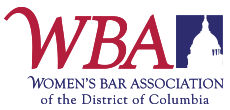The Women’s Bar Association of the District of Columbia condemns the U.S. Supreme Court’s recent decision in 303 Creative LLC v. Elenis in which the Court permits a business, though open to the public, to turn away a class of customers it would rather not serve.
Now, for the first time in U.S. history, the U.S. Supreme Court has declared a constitutional right to refuse to serve members of a protected class. Justice Sotomayor’s dissent aptly describes the harm brought by the Court’s decision: “[T]o deny same-sex couples the full and equal enjoyment of its services, the immediate, symbolic effect … is to mark gays and lesbians for second-class status.”
With this decision the Court has again made clear that it will not be bound by precedent. Prior to 303 Creative, the Court, Justice Sotomayor’s dissent notes, was “unwavering in its rejection of [such] claims, as invidious discrimination ‘has never been accorded affirmative constitutional protections.’” But now, by issuing this advisory opinion in a manufactured lawsuit brought by an organization that supports the recriminalization of sexual acts between consenting LGBTQ adults, the Court’s decisions continue to take the country in a direction less democratic and less fair to marginalized people.
As the WBA stated following the decision in Dobbs v. Jackson Women’s Health, “…we do not need a crystal ball to foresee other significant personal liberty rights – birth control, marriage equality, and even interracial marriage – that may be challenged” given the Court’s lack of respect for and dismissal of precedent. This Court normalizes the notion that gay and lesbian people, a class of people protected from discrimination on the basis of sex, may nevertheless be treated differently. The WBA is concerned that other protected classes, including women, pregnant people, people with disabilities, and people of certain races or religions could find their protections from invidious discrimination likewise erased with the stroke of a pen.
